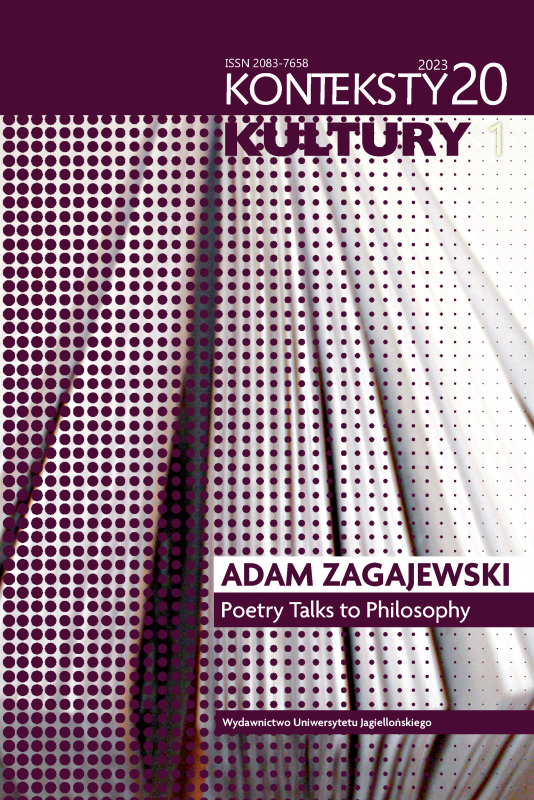Głos poety odzyskuje głos. O książce The Sound of Polish Modern Poetry: Performance and Recording after World War II Aleksandry Kremer
Głos poety odzyskuje głos. O książce The Sound of Polish Modern Poetry: Performance and Recording after World War II Aleksandry Kremer
Author(s): Katarzyna Kucia-KuśmierskaSubject(s): Comparative Study of Literature, Polish Literature, Book-Review, Theory of Literature
Published by: Wydawnictwo Uniwersytetu Jagiellońskiego
Keywords: Aleksandra Kremer; Charles Bernstein; Polish postwar poetry; author’s vocal performance; voice; audiosphere; sound studies;
Summary/Abstract: The article summarizes the most important theses and interpretations contained in the book The Sound of Polish Modern Poetry: Performance and Recording after World War II by Aleksandra Kremer. First of all, it places the research achievements of the Polish-American literary scholar on the map of reflection related to sound studies and “philology of the ear”. Then, it points out what is particularly new and revealing in Kremer’s proposal for voice-oriented literary research and the audiosphere in Polish poetry of the second half of the 20th century. The following parts of the article are a recapitulation of individual chapters devoted to the author’s “vocal performance” (Kremer coined the term to describe an author’s reading of their own poetry) of works from the post-war period: Miron Białoszewski, Zbigniew Herbert, Czesław Miłosz, Tadeusz Różewicz, Julian Tuwim, Aleksander Wat, as well as poetesses: Anna Kamieńska, Krystyna Miłobędzka, Halina Poświatowska, Wisława Szymborska and Anna Świrszczyńska. Kremer uses excellent literary and linguistic skills, supplying traditional humanistic methods with conclusions from the calculations of the Praat program, which analyzes pronunciation parameters. The author of The Sound of Polish Modern Poetry: Performance and Recording after World War II reveals to the reader the hitherto unrecognized world of sounds of Polish poetry of the second half of the 20th century. The poet’s physical voice is treated here as an element revealing the poetic “I” and illustrating the attitude towards his own poetry in general.
Journal: Konteksty Kultury
- Issue Year: 20/2023
- Issue No: 1
- Page Range: 58-73
- Page Count: 16
- Language: Polish

